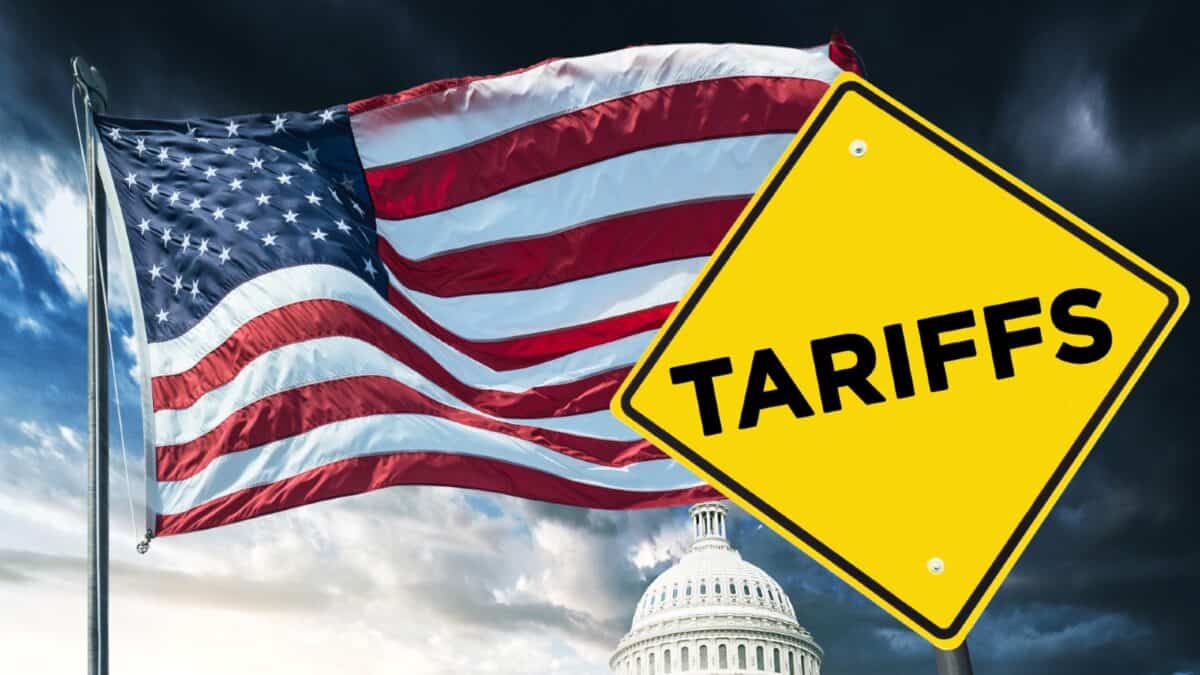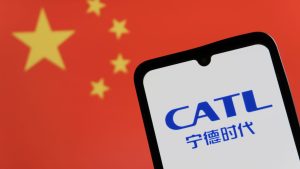The US stock market suffered its worst day in five years on 3 April. More than 50% of my portfolio is in cash, so I missed the worst of it. But my volatile and Asia-exposed tech stocks really suffered.
To start things off, here’s my quick take. The tariffs probably aren’t for the long run. The data suggests these tariffs could sink Apple and many other American companies reliant on Asian supply chains.
However, if the tariffs stick, we could expect to see iPhone prices hit $2,300 and an entry level $10,000 Rolex move closer to $14,000. That’s assuming producers don’t swallow the costs.
So maybe I could take a shot at one of my favourite companies Celestica — which produces routers and switches in Asia — in the hope that the share price (down 54% since 5 February) recovers if Trump brings tariffs down.
Or I could assume these tariffs aren’t going to disappear any time soon. Many analysts’ base case scenario sees tariffs remaining, but at a negotiated lower rate. So what new trends may emerge that could be positive for stocks?
Cross-boarder arbitrage
Cross-border arbitrage involves taking advantage of price discrepancies for the same product or asset across different countries or markets. This is a trend that could take hold. And it certainly makes some sense.
If an American wanted to purchase a Rolex which previously cost around $10,000, they could fly to Geneva, buy the non-tariff price, get the VAT back, and fly back to the US. The saving on the watch alone could be $5,000. Once again, that’s assuming the producer/importer pass on all tariffs to customers.
This is an extreme example because not everyone buys luxury watches. However, there’s certainly compelling forces to believe that shopping tourism could be a real thing if these tariffs stick. Even Nike’s Vietnam-produced trainers could become significantly cheaper in Europe, especially as it already has excess stock.
So what does this mean? Well, maybe transatlantic travel demand could pick up. That may be positive for companies like IAG and Delta. However, it would have to be a strong trend for it to make a noticeable difference to sales. Likewise, maybe cruise companies like Carnival have been oversold. Cruises often stop at tax-free shopping designations in the Caribbean and Europe.
VAT refunds
One I’m watching very closely is Shift4 Payments (NYSE:FOUR), which recently agreed to buy Global Blue Group Holding (NYSE:GB). The latter could quietly emerge as a beneficiary of Trump’s proposed tariffs, particularly if luxury shoppers increasingly head overseas to sidestep higher prices at home.
Global Blue facilitates VAT refunds for international tourists, primarily in Europe, allowing Americans to reclaim local taxes when purchasing high-end goods abroad. With tariffs potentially adding 30% or more to items like Swiss watches and French handbags, Global Blue’s value proposition strengthens.
Trading at 20.5 times forward earnings, Global Blue isn’t particularly cheap. However, the stock’s currently covered by just one analyst, suggesting it may be flying under the radar. Nonetheless, a shift in political winds or diplomatic backlash could curtail VAT refund schemes, which would directly hit Global Blue’s core revenue stream.
Still, both these companies are worth watching. If Global Blue wasn’t being taken over, I’d buy the stock. I’ll keep watching Shift4 for now.
This post was originally published on Motley Fool





